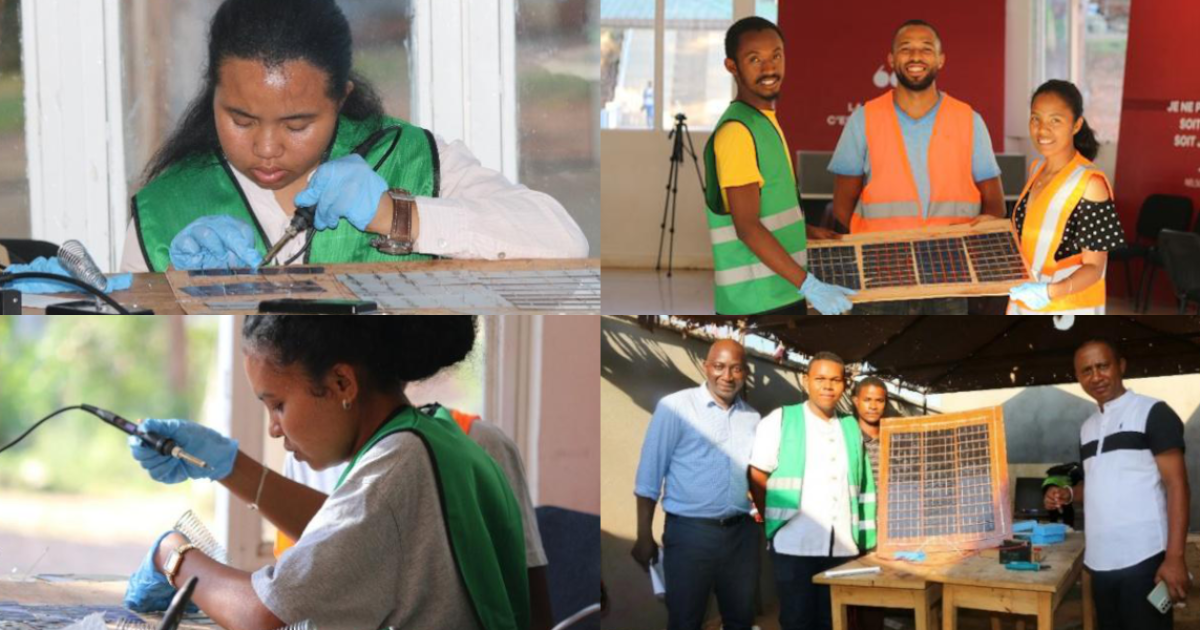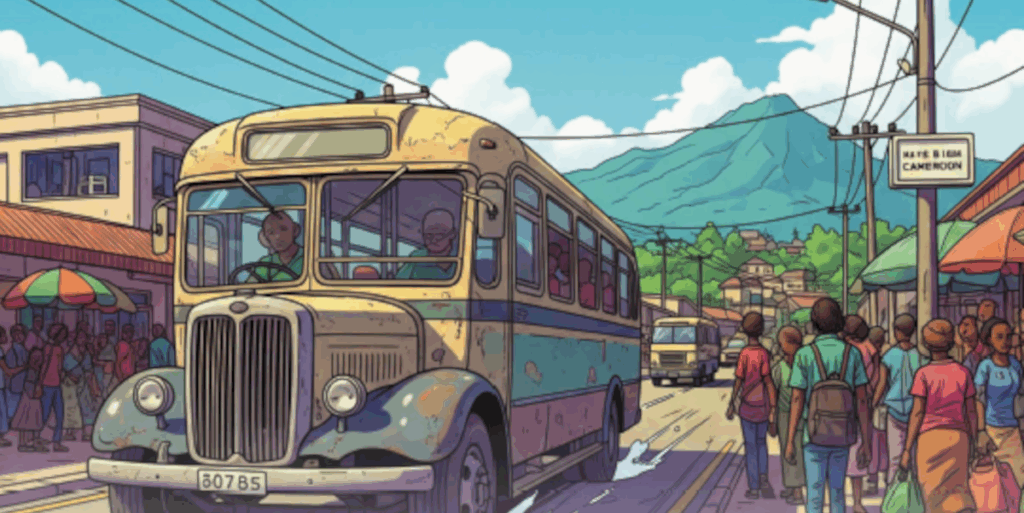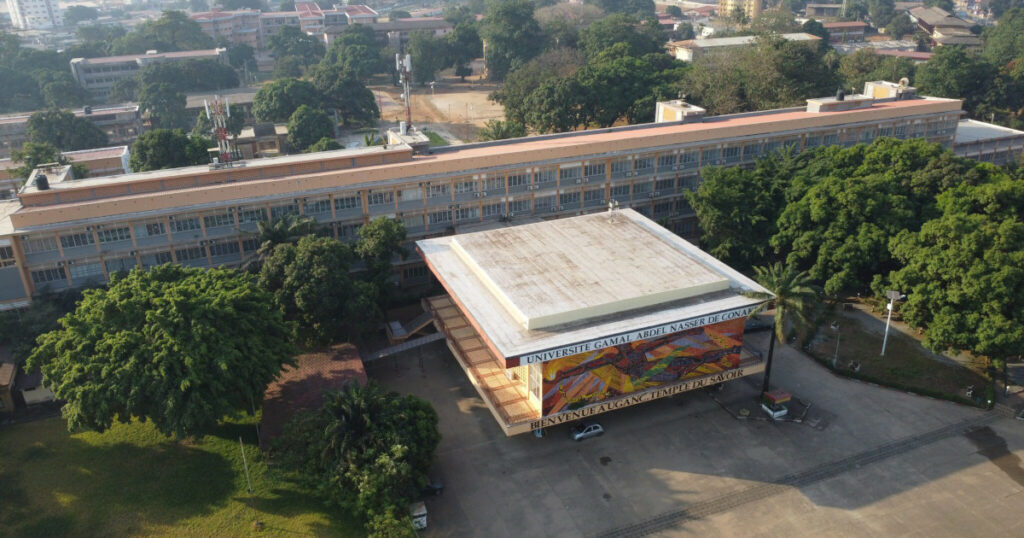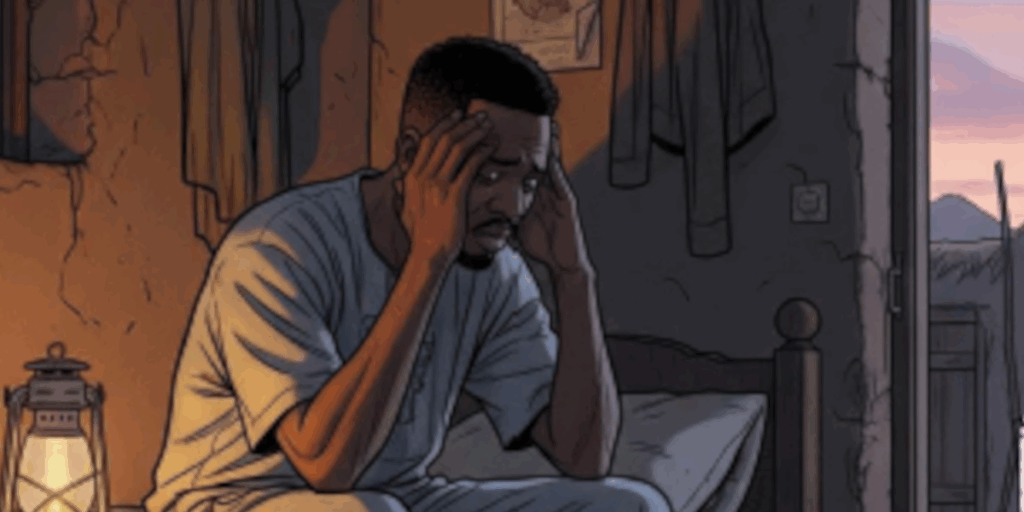The Commission Physique et Optique Sans Frontières has strongly contributed to the organization of several experimental science workshops in Madagascar in november 2024
The Commission Physique et Optique Sans Frontières (Physics and optics without borders) took part in the third “summer school” organized by the Fianaralab association. This edition, named PV FIANARA 2024 was co-organized by the universities of Fianarantsoa and Toliara, in southern Madagascar, who hosted the event. It was an opportunity to continue the Formation Internationale en Solaire Photovoltaïque (FISP-International Photovoltaic Solar Training) program, initiated in Burkina Faso and Togo, and to offer an introduction to optics and photonics through workshops using Lightbox kits.
The workshops brought together around 80 participants in Fianarantsoa, including two from the Institut National des Sciences et Techniques Nucléaires in Antananarivo, and 15 from the École Supérieure Polytechnique d’Antsiranana. The latter took four days to get to Fianarantsoa (and just as long to return!), which shows their enthusiasm for taking part. In Toliara, around 40 people took part. In all, out of the 120 participants, the ratio of females to males was 40/60.
Photovoltaic solar power
Arouna Darga, senior lecturer at Sorbonne-Université, and vice-chairman of the commission, led a workshop to manufacture and characterize solar panels at each of the universities, following a plan he had already implemented in other countries. Each workshop lasted three days. It began with a theoretical section on how solar cells and solar panels work.
This is followed by practical training in two parts. First, participants build solar panels. At the same time, they learn techniques such as soldering, or the use of resin to protect the cells. Next, they learn how to characterize the performance of the panels they’ve built, as well as how to equip them with chargers and LED lights. This will enable them to check and judge the performance of solar panels offered for sale in the country.
In addition to the solar cells, all the necessary tools and equipment (soldering iron, pliers, multimeters, resin, flux, solder), were supplied in quantity by the commission. Arouna Darga was keen to ensure that some of the trainees would be able to repeat the training they had received: he therefore left a sufficient supply of solar cells on site for future training courses, under the responsibility of the Fianaralab association.
In addition, the solar panels produced during these workshops were distributed, with the aim of publicizing photovoltaic energy and enabling the development of activities. It’s important to add that workshop participants also included staff from both universities. The following have benefited from these panels:
- four for a school in Fianarantsoa for evaluation (4);
- one for participating students from the Institut Polytechnique de Antsiranana (Diego Suarez) (1);
- one for students at INSTN (1);
- three for the University of Toliara (3).
Optics and photonics
An introduction to optics and photonics was provided, in particular through the use of Arduino modules for light management and various experiments in optics and photonics. Pierre Richard Dahoo, professor of physics at the université de Versailles-Saint-Quentin-en-Yvelines, and chairman of the committee, was in charge of these workshops.
At the end of the workshops, the kits were distributed to various structures, which will be able to use them to carry out experiments, facilitated by the existence of an experiment guide that can be downloaded from the SFO website:
- two for the University of Toliara;
- five for the University of Fianarantsoa;
- three for the Institut Polytechnique d’Antsiranana ;
- one for INSTN.
Additional activities
In addition to these workshops, Fianaralab also organized a day of meetings and workshops on innovations in the context of global warming and sustainable development with UVSQ and the LATMOS laboratory. Workshops focused on themes related to technological revolutions in society, such as the deployment of nanosatellites for Earth observation, the evolution of digital technologies through the implementation of digital twins in production and service processes, big data, Artificial Intelligence, frugal innovations or inclusivity in the training system.
François Piuzzi, member of the commission, intervened remotely to give a presentation: Frugal approach for scientific instrumentation.
In Toliara, a day’s work was devoted to the methods of teaching practical work at a distance. It was led remotely (!) by Raymond Campagnolo and Robert Baptist from the association La Puya Internationale. After a session in Fianarantsoa in 2023, sessions have yet to be scheduled in Antsiranana and Antananarivo. The necessary equipment was financed by the commission, with COSOG as sponsor.
Official meetings
On arrival in Antananarivo on October 29, 2024, a meeting was arranged with the Secretary General of the Ministry of Higher Education, Julien Salava. He congratulated the team on organizing the event for the benefit of Madagascan universities, and expressed the hope that the activities would be extended to other regions in the years to come.
Just before their return flight to Paris, Fianaralab president Fanevamampiandra Herinirina and Arouna Darga also met with Franck Molinaro, expert advisor in higher education and research for Expertise France, seconded to the University of Antananarivo from the University of La Réunion. Discussions focused on draft calls for tender and Erasmus opportunities.
Financing
Funding for the various actions was difficult to obtain, and we are particularly grateful to Jean François Joanny (Académie des sciences et Collège de France) for his unfailing support. These actions in Madagascar were made possible thanks to our sponsors and supporters:
- Fondation CFM ;
- Sorbonne University;
- UVSQ
- Comité des relations Internationales et des Jumelages de Cachan;
- Comité d’entreprise de la Caisse des Dépôts et Consignations;
- Darga Tech ;
- Atout Sciences ;
- Latmos ;
- SFP
- SFO
In Toliara, there have been sponsorships (without donations) from GIZ (German International Cooperation), Orange Solidarité, as well as from a local ANKA company specializing in photovoltaics, which has set up a 400 kW photovoltaic power plant to supply a village. In this particular case, the business model is based on hotel financing.
Acknowledgements
The organizers would like to thank :
- Christophe Daussy president of the SFO teaching commission, as well as the SFO for supplying 11 Lightbox kits;
- the lecturers from the universities of Fianarantsoa and Tulear for making the INNOA day possible;
- the staff of both universities who contributed to the success of this operation, as well as the presidents of both universities:
- for Fianarantsoa: Hasindrainy Florent Herimampionona, Angelo Raherinirina, Lova Rakotoarivony,
- for Toliara: Heriarivelo Risite;
The Commission Physique et Optique Sans Frontières is a joint action of the Société Française de Physique and the Société Française d’Optique.




